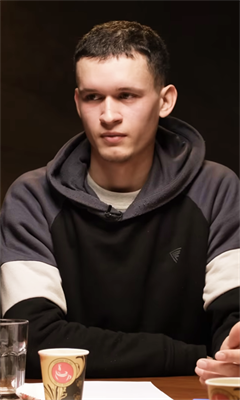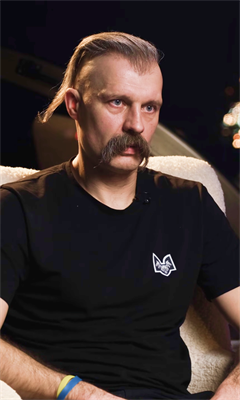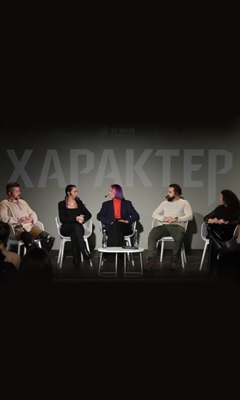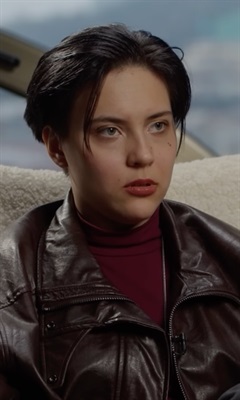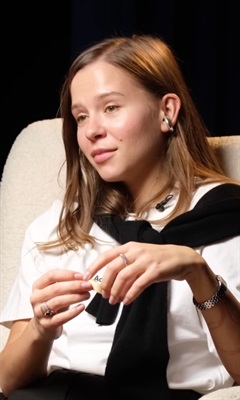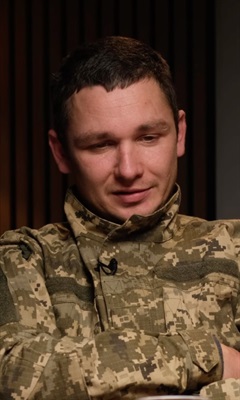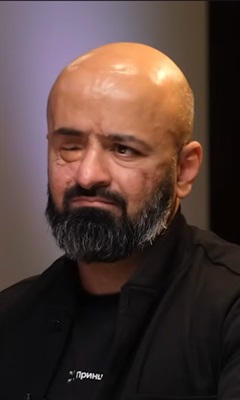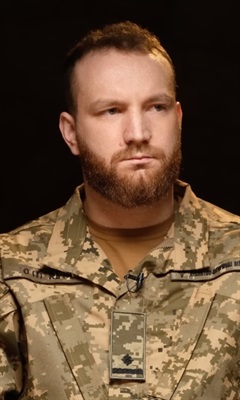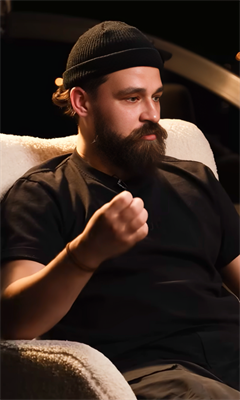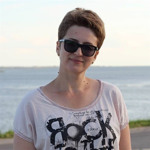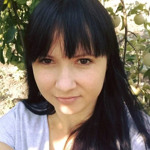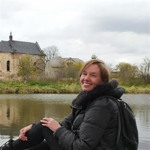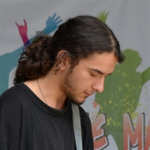Chess saved Ihor in Mariupol from despair. He is now in Israel, starting his life from scratch
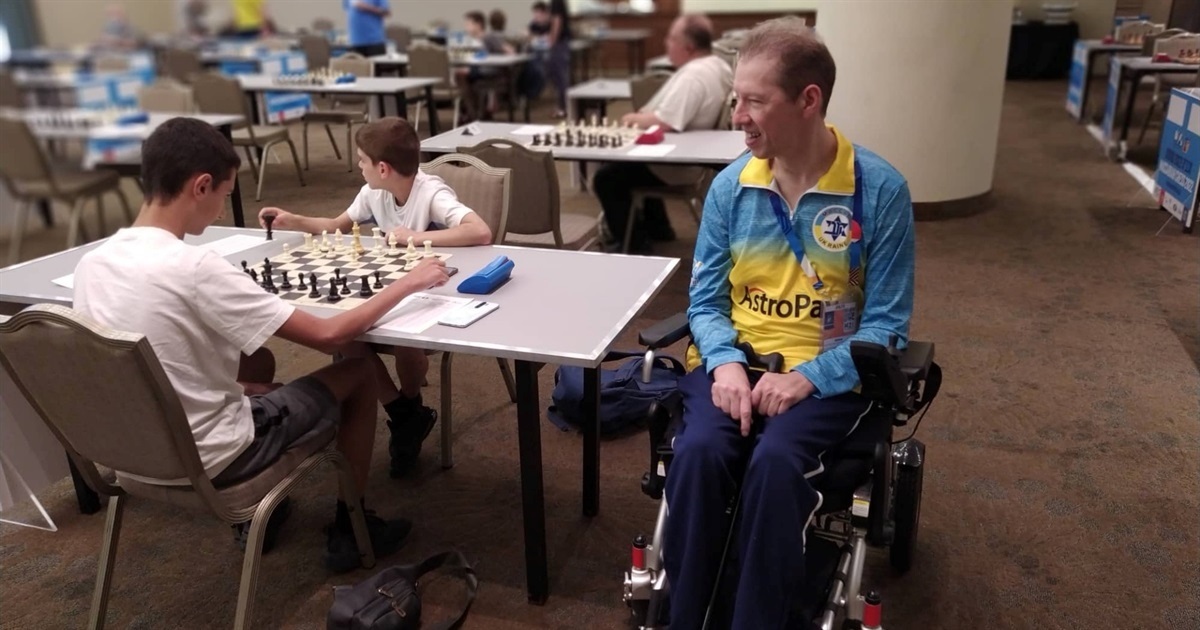
In the morning when Halyna went to search for bread and water, Ihor stayed at home practicing chess. He was wearing three pairs of wool socks, two sweaters pulled over his sportswear, a waistcoat made of sheep wool, a winter jacket, a beanie and a scarf. His feet were wrapped in a blanket and he was also wearing gloves without fingers. With his frozen fingers he was moving chess pieces over the board.
Ihor Yarmonov told Svoi about his life in Mariupol and the evacuation through Russia to Israel.
We sustained ourselves on rice, trading other food products for it
February 24 was the day of panic and huge lines to shops and drug stores. Prices soared immediately. The following day Halyna and I wanted to take a cab to see an allergist, for the appointment with whom we had been waiting for a month. We couldn't find a cab even after having raised the rate. Tension in the city was palpable, even though its mayor, Vadym Boychenko, was calling on people to stay calm. However, since 2014 we had practically been living in a city close to the front line. We worked working, our kids went to school. Sport was developing. Many people were hoping that the martial law would be abolished in a month and things would go back to normal. They didn’t.
It was impossible to buy medications that we needed. The new ones were not being delivered and the ones that had still been left in drug stores were sold out in the twinkling of an eye. I depend on asthma medications. My wife also found herself in a critical condition in terms of medications. She is dependent on hypertension pills and thyroid hormones. Without them she would be doomed to slow death. Halyna also suffers from an autoimmune disorder called coeliac disease. She requires a very strict gluten-free diet. It meant that we were faced with a major challenge in Mariupol, since she cannot eat bread, macaroni, pearl barley, wheat groats, bulgur, cookies or rusks. She needed gluten-free products which were impossible to come by no matter how much money you had. We sustained ourselves on rice, trading other food products for it. We were also given 3 kg of frozen potatoes from which we cooked soup and borsch. This sort of brew had a weird taste but we gobbled it up nevertheless.
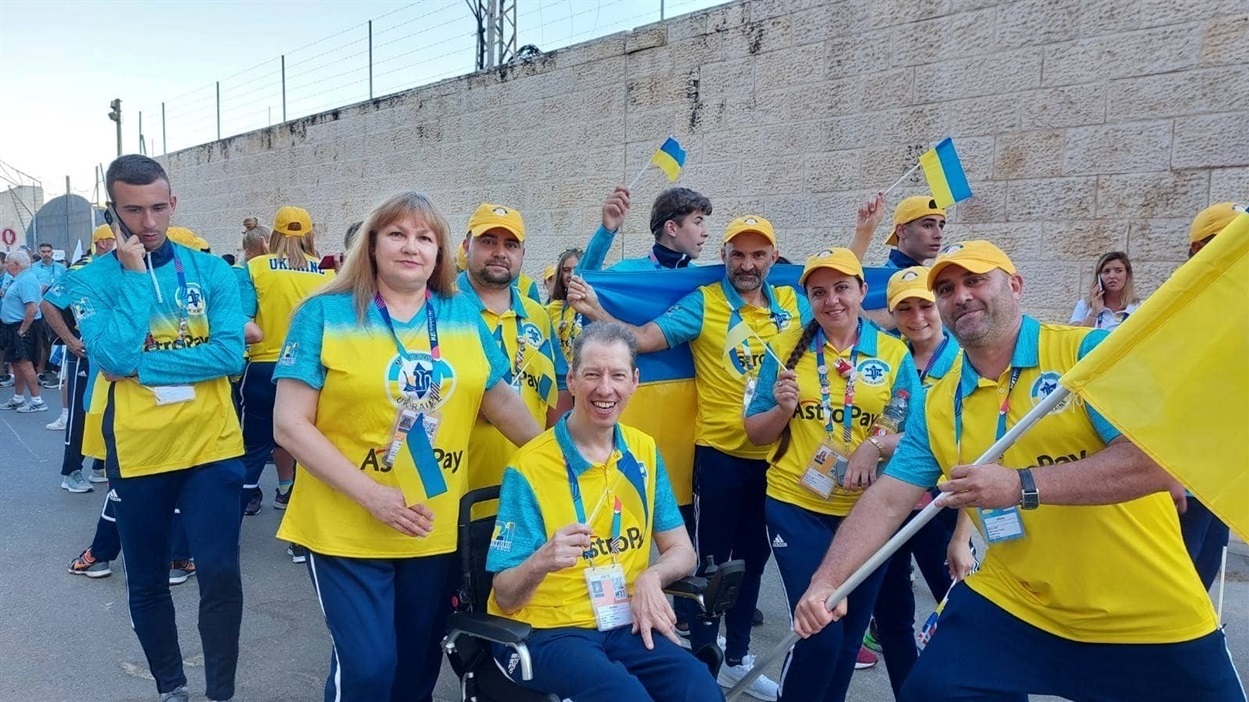 Opening ceremony of a tournament in Maccabiah.
Opening ceremony of a tournament in Maccabiah.
I broke down food into portions to be eaten each day. We had a kilo of sugar and two bars of chocolate
With every day the situation in Mariupol was deteriorating. We contacted a member of the local city council with a request to evacuate us immediately. She told us that the city was well protected and urged us to stay calm. We also called the Donetsk regional center ‚Invasport‘ with the same request. The answer was the same - ‚Keep calm. You're being protected by the armed forces of Ukraine’.
Halyna called everyone she knew in the city but we couldn’t find a car that would evacuate us. Finally, we managed to approach a local priest. We had a deal that he would come to our house, pick us up and take us to the railway station where we would board an evacuation train. The following morning he called us to break terrible news to us, saying that there would be no train since fierce fighting was taking place in Volnovakha. We made attempts to reach people working at the National Sports Committee for people with disabilities. However, nothing came of it.
We were living on the fourth floor of a panel high-rise residential house in the Central district. We had no big food supplies, just regular food products for a week that we stored in the fridge. In the freezer we had a bit of meat, frozen chicken, farcellets de col, dumplings and pierogi. It was dangerous to spend hours waiting in line because of shelling. We soberly assessed our own abilities, having estimated the amount of the food supplies we had.
For the two of us we had a kilo of sugar, two bars of chocolate, a kilo of flour and buckwheat, a jar of blackcurrant jam, 40 farm-fresh eggs (which we were very lucky to have bought for an exorbitant price at a small meat shop nearby). I broke down this food into portions to be eaten each day.
People on the streets were sure that the war would last no longer than 10 days and the warring parties would sit down at the negotiation table. They thought we needed to hold out just for a bit longer.
I wouldn't have survived in a basement since I have severe asthma
In the chat created by the residents of our house we read a message saying that the basement of the house was a very questionable shelter as such houses as ours would simply fall apart like a house of cards once being hit by a bomb. We were advised to sit out shelling at the load-bearing wall in our apartment. However, people were panicking and they demanded that this technical basement be opened. My wife dashed there at once to assess the conditions for my potential stay there. It was a dark and dirty place with cramped space and lack of air. There was neither access to water nor a toilet. It was clear that a person like me with disability who suffers from asthma would not have survived there.
That is why we decided to stay in our apartment and take shelter in our bathroom measuring 3,7 square meters. Only nine families stayed in the block of our house where we were leaving. We were alone on our floor. Curfew lasted from 6 pm to 6 am. During this time the doors leading to the entrance to our house was locked.
On March 2 we were cut off from mobile connection, water, electricity, gas and heating. It was a good thing we managed to fill the bath with water (about 200 liters). There was a lot of gossip that water was not potable since it had been poisoned. Nevertheless, we did not flush it. Our fridge got defrosted, which meant that the dumplings and pierogi stuck together. Our small stacks of food began rapidly evaporating.
What was in the box with a ‚Z’ letter on it?
During 45 days of the blockade we received a food packet only once. Halyna went to the Metro shop at the end of March, having taken with her my ID confirming that I have a disability and that I am also an honorary citizen of Mariupol. She had to stand a huge line. Five people were let in at once. Armed soldiers were standing at the entrance. They took her passport, wrote all her details down and offered her to put her signature. The data from there paper notebook was subsequently transferred to a computer, which meant that she was not eligible for a second food packet. Otherwise she would be taken to the commandant’s office, so they told her.
This food packet that was placed in a box with a ‚Z‘ letter on it consisted of1 kg of sugar, 2 kg of flour, 1 kg of noodles, rice and pearl barley, 3 cans of canned fish, sprat in tomato and sardines in their own juice, and 3 small cans of meat. The quality of the products was poor. They mainly consisted of fat. Also, we were given 5 liters of bottled water, 1 liter of sunflower oil (mixed with that of rapeseed) and one loaf of fresh bread. There was also a small hygiene kit: a roll of toilet paper, soap, shampoo, toothbrush, toothpaste, sanitary pads, 400 grams of hand washing detergents. We were supposed to live on that for a month.
It got cold in the apartment. Water in the pans and kettle would freeze in the kitchen. We decided to insulate our living room by gluing adhesive tape over window pains, having also put pillows against them. It really helped a bit.
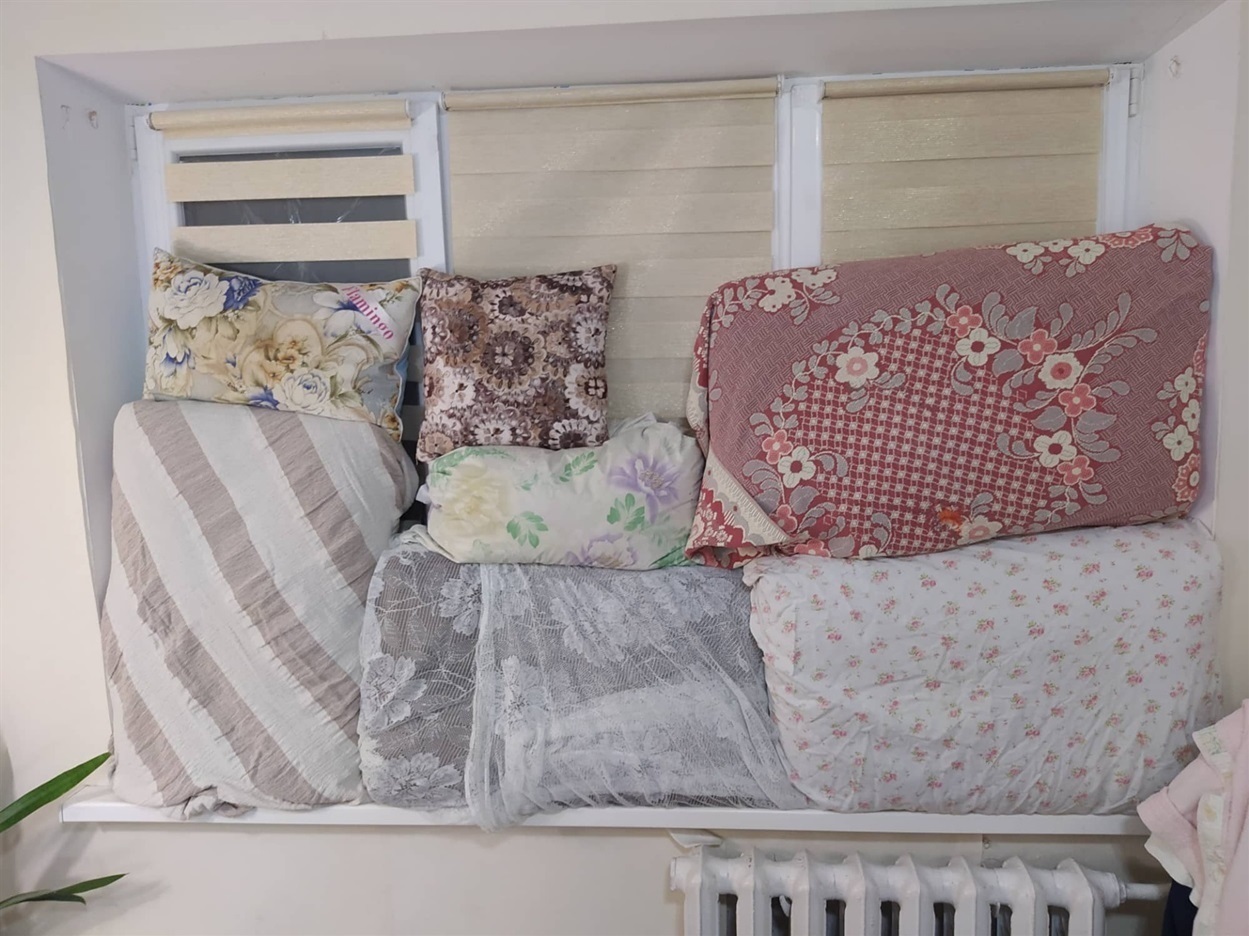
We cooked food on the street. We would make fire. We burnt books from our library. We would tear them up one sheet at a time to warm the kettle up. While cooking porridge, we would have to resort to some tricks to save firewood and time: in the evenings we poured the water from our bath into the plate with cereal and the following morning the dish was ready.
In the mornings we put a pan over fire and the cereal would be warmed up quite quickly. We did not wash cereals, we would simply sort seeds through and then put them in a towel and sieve them. We would wipe potatoes, carrots and beetroots out with the help of flyers from ATB (the biggest chain of retail shops in Ukraine - translator’s note). We then grated these vegetables and boiled them over fire. This allowed us to spend less firewood, water and time cooking. By the way, on the day of our evacuation we burnt the book ‚Conquered virgin lands‘ to heat two cups.
People in Israel started fundraising to help us buy essential items
That was how we spent 45 days. And then my wife's sister, Svitlana, helped us evacuate. She was the only person in the world who took care of us. Svitlana found us and managed to get us out of the city. Knowing me well, she understood that since we did not get in touch with her, it meant that things were dismal. It meant we couldn’t reach her. She spent the whole of March searching for opportunities to help us. She firmly believed that we were alive, although others thought that we had been buried under the rubble. Thanks to her and to the International Organization of Sportspeople with Disabilities Helena and I were evacuated. In April we were taken out of Mariupol through Nikolske, Donetsk, Makiivka over to Taganrog. There we were put up at a refugee camp.
Svitlana bought us train tickets to Moscow. We spent three weeks living together in a one-room apartment. We did not apply for the refugee status, nor did we receive any payments. We just had to stay there for the period of 90 days. All this time we kept thinking about what to do next. We considered different options of leaving the camp.
I received an email inviting me to participate in the IPCA world championship held in Ashdod. This helped us a lot. Israel Chess Federation covered our stay, food expenses and tournament fees. They also bought us tickets. At Domodedovo airport police took much time checking our belongings. They even took our mobile phones to check our contacts and message history. We thought they wouldn't let us out. However, a personal invitation to the chess championship saved us. That how we ended up in Israel.
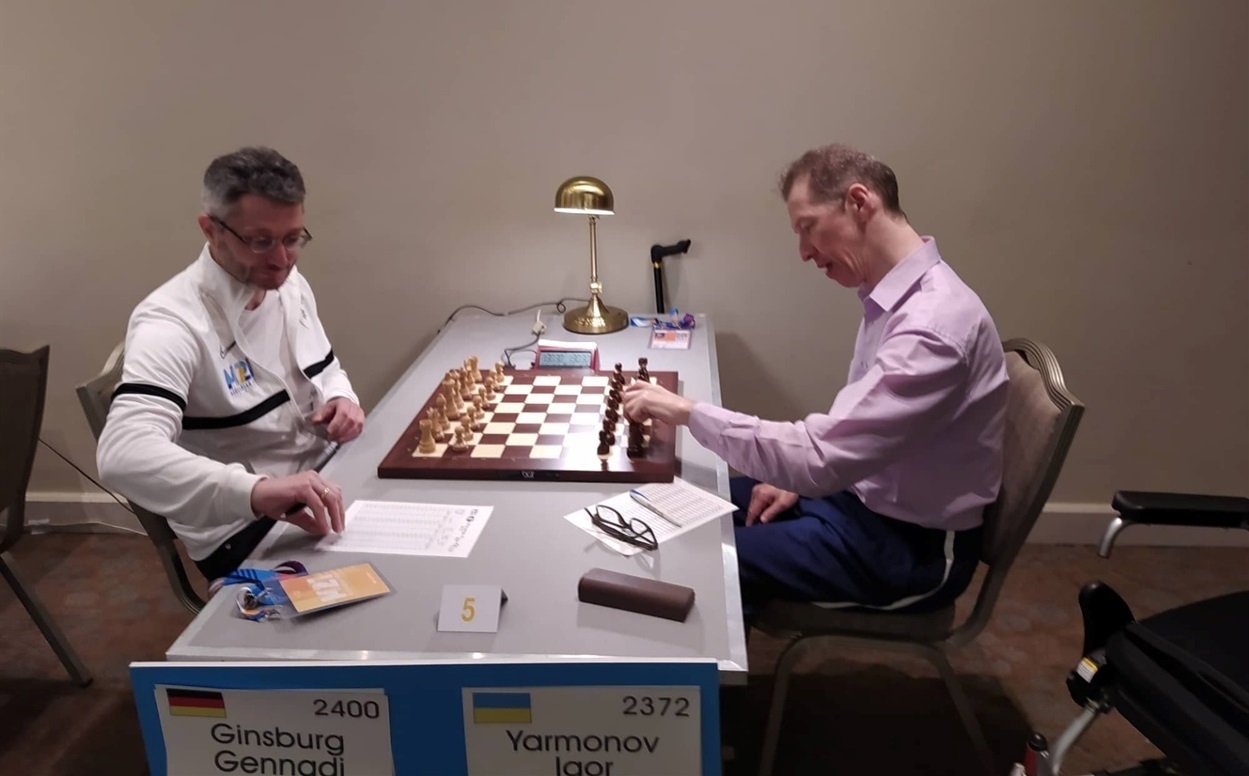
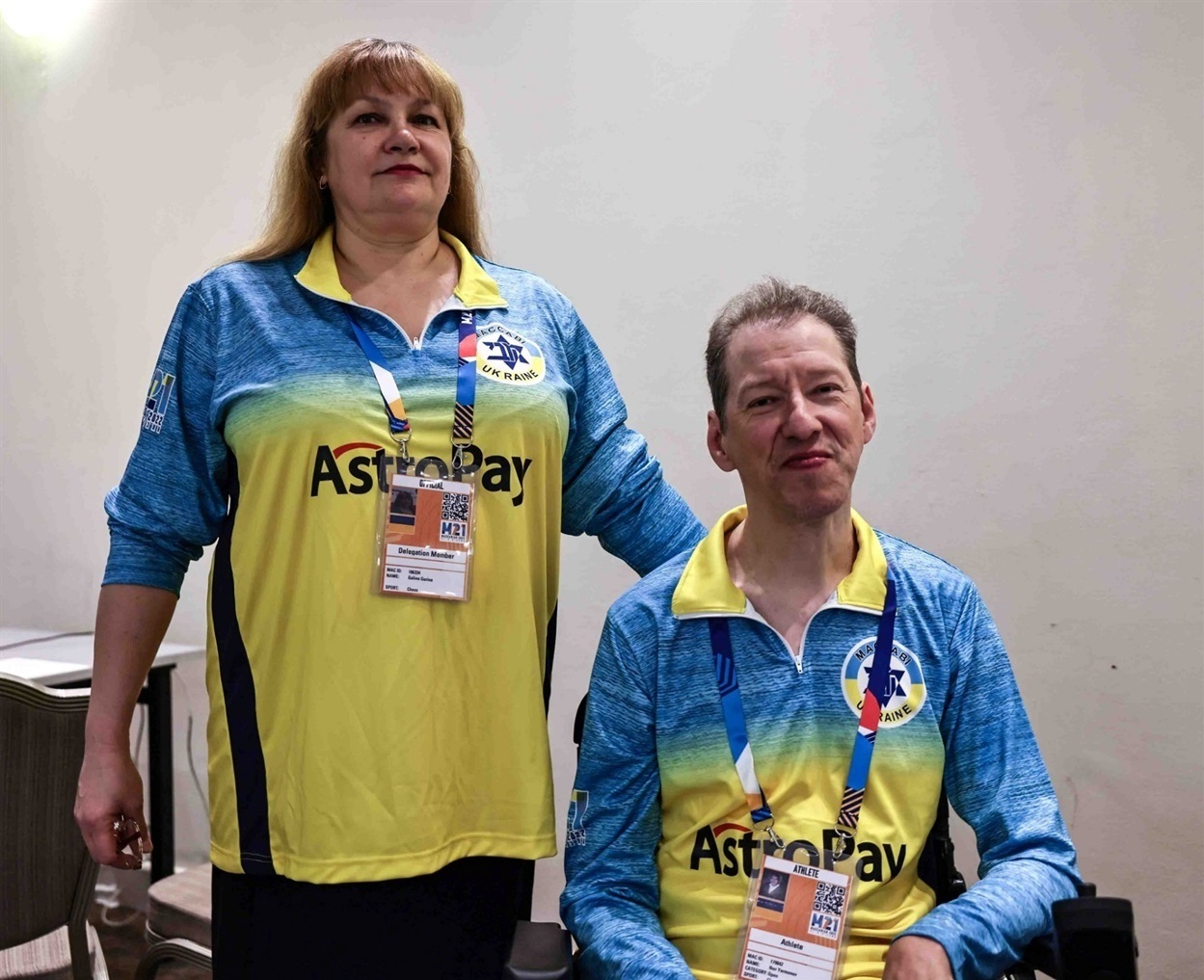
On May 17 we were taken to a hotel for Ukrainian refugees in Jerusalem. We do not have the refugee status. We live here legally on a 90-day guest visa. Volunteers helped us a lot by giving us clothes and footwear. They learned about my needs - I did not have a wheelchair, orthopedic footwear, different devices for taking shower, vitamins or medications for both of us. At the tournament in Ashdod they shot a TV story about me. After it was aired, inhabitants of Israel launched a fundraising campaign to buy me an electrical wheelchair, a ladder for it and special footwear.
Our tourist visa expires on August 8. Recently we were contacted by the social service of Israel asking us about when we were planning to leave for Ukraine. Local volunteers have assured me that having such a severe disability I can’t be deported as our native city is under occupation. So, we are hoping that our visa will be extended.
***
Recently Ihor participated in a tournament in Jerusalem as part of the Maccabiah Games. This is a sports competition modeled after the Olympic Games and held every four years in Israel. Our fellow Ukrainian has played against grand masters in a round robin tournament. Each day he played a new opponent.
At the world chess championship for sportspeople suffering from musculoskeletal disorders Ihor took the fifth place. At the Jerusalem rapid chess championship he won silver medal. At the end of June he became the Jerusalem rapid chess champion. At the recent two tournaments Ihor played opponents without disability.

